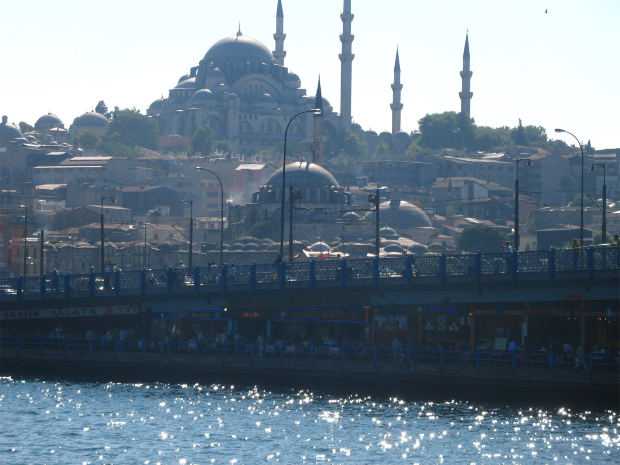by Ivanna Pinyak
Such a variety of identities is hard to imagine elsewhere. One of the biggest cities in the world, Istanbul nowadays counts from 14 million to 20 million people according to non-official records. With its outstanding historical and cultural blend, Istanbul represents almost a quarter of the country’s population. Spiritually, it is the most “European” side of Turkey. Would it mean the country is at least one quarter ready for EU membership?
This non-capital megapolis at the crossroad of the two continents was chosen to be the European capital of culture – 2010. It is in Istanbul that the final cycle of the COE – orchestrated European media encounter on diversity and anti-discrimination was held. During 2-3 days, media professionals and journalism students from all over Europe and Turkey were supposed to discover, to investigate and to cover all the possible minority, identity and discrimination issues in Istanbul. Then, in one day and a following night reports were to be edited in small teams, together with European and Turkish peers.
What could you do in only few days in Istanbul? Is one day enough to feel the spirit of the city and appreciate people’s help, to hop-into, hop-out of a couple of spiritual temples, and taste all the gastronomic chef-d’oeuvres? Is it enough to visit the neighborhoods of Istanbul, to meet and talk to people, to get permissions from both public and private institutions? However, in one day, about 30 reports were realised for TV, radio, written press and multimedia. Follow some of them on
One day was almost enough to zoom in on one very small part of thr population – in a city of 14-20 million people, to trace one fate, one fight, one hope.
Ethnic and religious groups, women’s representation and rights, tradition and contemporary society. While there’s still a lot of work to be done on people’s perceptions and attitudes, the city’s industrial and commercial progress would create more facilities, but even more gaps and cleavages. If modernization brings a response to certain problems of discrimination, it also creates others. The question we asked ourselves was: being a disabled person in Istanbul, how does it feel? How comfortable is it? Could you love this city if you were mentally or physically disabled?
In a big city like Istanbul, the challenges grow exponentially every year. I particularly thank my Turkish and Ukrainian colleagues for an excellent time together. Thanks to Alper Atak, journalist at Turkish Radio and Television Corporation for great work, interpreting and guiding us around your home city. Thanks to Tina Peresunko, expert from Ukraine’s first Information Agency for Cultural Industries “PRO”. This joint work was not aimed at being critical about what’s right or what’s wrong in Istanbul, but to draw attention to a particular problem so as to develop a critical insight on oneself, comparing other’s discourse on diversity and discrimination to ask how tolerant I am myself.
Follow our report and a number of others on the website and don’t hesitate to add your comments! www.wix.com/clarisca7/fromistanbulwithlove
via From Istanbul to Constantinople | Welcome to the Chatbella Multilingual Blog.
